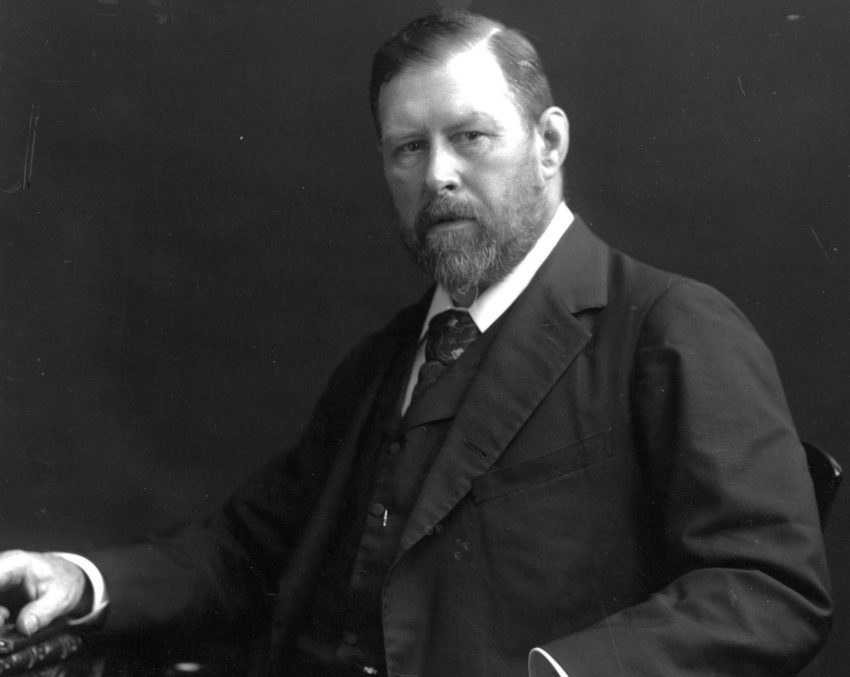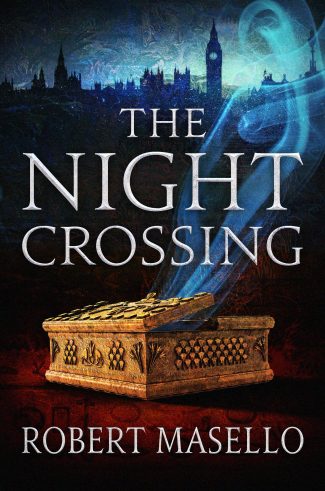Back from the Un-Dead: Incorporating Bram Stoker into My Latest Historical Fiction
By Robert Masello
September 18, 2018
When you start out writing a book about a real person—in this case, Bram Stoker, the author of Dracula, arguably the most famous supernatural tale ever told—you find yourself both liberated and constrained at the same time.
You’re liberated from having to figure out so much about the protagonist of your book because you already have a completed life at hand. You know when he was born and where; you know if he was raised in penury or luxury; you know where he went to school, whether he got married, and had kids, etc. All of that scut work you have to do when creating a wholly fictional protagonist has been done for you. (As someone who has also gone down that other road—making up a protagonist out of whole cloth—believe me when I say this is a huge time-saver.)
But then the problems crop up. Some lives don’t conform too well to the structures of fiction, particularly the story you want to tell. Bram Stoker, for instance, did not live a life of great adventure and derring-do. In 1847, he was born into a perfectly respectable family (his father was a senior civil servant), went to Trinity College in Dublin (where he did well, even winning the University Athlete prize), and later married a celebrated Dublin beauty, Florence Balcombe, with whom he had a son named Noel. All well and good but hardly thrilling.
He settled into a mundane civil servant job, composing a book as lively as its title: The Duties of Clerks of Petty Sessions in Ireland. On the side, however, he wrote reviews of plays—one of which caught the eye of Henry Irving, the most renowned actor of his day. Stoker had praised Irving’s performance as Hamlet, and the celebrity thespian summoned him to a meeting at the Shelbourne Hotel where they discussed the future of the English stage and immediately hit it off.
 Irving hired Stoker to work at his Lyceum Theater (still extant, by the way), and over time, Stoker assumed the role of business manager and personal assistant to Irving—doing everything from keeping the place financially afloat to managing the elaborate stage productions, from orchestrating international tours to ministering to Irving’s increasingly precarious health. Despite his own artistic ambitions and longing for fame, Stoker spent the best part of his professional life—27 years—in the shadow of the egotistical and demanding Sir Henry Irving. (He was knighted by Queen Victoria in 1895, the first actor ever so honored.)
Irving hired Stoker to work at his Lyceum Theater (still extant, by the way), and over time, Stoker assumed the role of business manager and personal assistant to Irving—doing everything from keeping the place financially afloat to managing the elaborate stage productions, from orchestrating international tours to ministering to Irving’s increasingly precarious health. Despite his own artistic ambitions and longing for fame, Stoker spent the best part of his professional life—27 years—in the shadow of the egotistical and demanding Sir Henry Irving. (He was knighted by Queen Victoria in 1895, the first actor ever so honored.)
But Stoker was never inwardly content; he seethed with a longing to make his own mark. He wrote Gothic tales for any publication that would have them and even paid to have a collection of his own children’s stories—Under the Sunset—published in 1882. (And never, by the way, was a grimmer batch of tales aimed at kids.) But he was constantly searching for that one great inspiration, that one great idea that would make his own name. After seven years of work, he’d finally completed a novel called The Un-Dead, which his publisher did him the favor or retitling Dracula. But even when he arranged a staged reading of a script based on the book (to protect its theater copyright) at the Lyceum, Irving didn’t bother to attend.
The book got generally good reviews when it came out, but as you may have noticed, it’s done pretty well over the years since, boosted in large measure by F.W. Murnau’s 1922 movie Nosferatu (which Stoker’s widow sued over and won) and, later, by the Universal picture starring the inimitable Bela Lugosi. For a guy who lived much of his life as a harried drudge to an imperious actor, Stoker certainly got the last laugh. Mention Henry Irving to most people and wait for the blank stare; mention Bram Stoker and instantly get a reaction.
In my new novel, The Night Crossing, I’ve tried to honor the real life and struggles of Bram Stoker while engaging him in an exciting, if fictional, story of his own—a story that purports to be the true adventure that he later transmuted into his most famous tale. Henry Irving plays a role in the book—how could he not?—but it’s Bram Stoker in the limelight, the star of the show, with just his name on the marquee … as is only fitting.
Comments are closed.

This is really cool. This is my favorite writer. I recently read the literary review of the famous author Bob Venirgen. He said that if Stoker worked as a copywriter, he would have opened a service for writing assignments. I am sure that he said it with love. Stoker’s work is similar to innovative solutions in the field of classical literature. Students often use it in their blogs and websites. For example, this site https://au.edusson.com/assignment-writing-service has become an opening up in the field of experimental assistance to students. Stocker is a symbol of education and new solutions. I think that we should remember his principle: “Have more, give more.”
ABC Assignment Help is the supreme and reliable brand that has proficiently aided the purpose of students. Be it your academic assignments, reports or essays included in the coursework, our team of writers are always prepared to provide you with 100% genuine write-ups. Our PhD certified tutors are dexterous in presenting impressive essays with authentic information and ingenious contents.
Your blog presentations is great and informative. Thanks for sharing!!
Today race is very high for a better career and job. We need to do very much hard work to get a good job and a successful career. After all, we are felling some absence of knowledge due to weak basics in our academics. So, do more focus on your basics Australiaassignmenthelp.com provides your homework help.
Most historical fiction has the history part as a backdrop, and another story is played out in front of it.
Historical fiction is a fictitious story set in the past. Non-fiction being the opposite of fiction (i.e. dealing with real events, studies, objects, orginizations, people, and programs), then historical non-fiction is a work that covers events, people, orginizations, studies
Great article Lot’s of information to Read…Great Man Keep Posting and update to People..Thanks for sharing!!
Thank you for this information
Do you need Assignment help services in UAE at affordable price by writers? If yes then you choose a right destination. Assignmenttask.com provides Assignment Writing Service, Management assignment Help, Case study Assignment Help and many more.